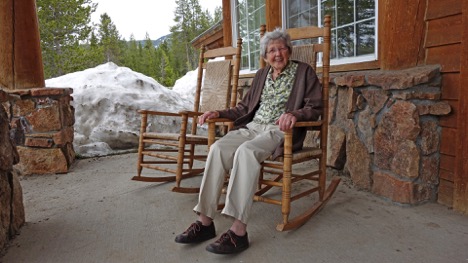Losing a spouse is difficult at any age, but for seniors, this type of event can be particularly overwhelming. A spouse’s death may spur a need to move to be closer to family or get rid of a loved one’s treasured belongings that can no longer be kept. It is never easy to decide what to keep and what to get rid of after a loved one’s passing, but a few guidelines like these from Ducks In A Row can simplify the decisions.
Prioritize what tasks need to be done.
There are some decisions that need to be made quickly after a spouse’s death. If you are helping a senior sort through all of these tasks, help them prioritize what needs to be done quickly versus what can be shelved until an easier time. For example, experts recommend holding off on selling a home and moving if possible, because rushing this can lead to regrets later.
When a senior is ready to go through their spouse’s things, put together a plan. Next Avenue suggests prioritizing what other family members will want before getting rid of anything and then deciding what room to tackle first. A spouse’s office may be an easy place to start as it will have fewer personal mementos, and there will be areas that are a higher priority than others.
Focus on ways to preserve treasured memories.
Most seniors will need to break this process down into small chunks of time, because it can become very emotional. Your loved one will come across many things they have not looked at in a while and they will be flooded with memories of their spouse. Try to allow them the time they need to process this experience without insisting on a specific timeline.
As your senior decides what to keep, it can help to consider whether there is space for it, whether it is a duplicate of something else, and whether there is a way to keep the memory without keeping the item itself. You can take photos of items and load them onto a digital frame or create a memory book, or use favorite clothing items to have a quilt made.
Donated items can do a lot of good for those in need.
Unclutterer suggests donating items that are in good condition; consider giving to the deceased spouse’s favorite charity. Those who work with the homeless or unemployed would love to have quality clothing items and What’s Your Grief details that some charities take used books and redistribute them to groups in need.
Though it may be hard, dismiss any feelings of guilt as things are put into the donate or discard piles. Not everything can be kept, and the things that stay in a senior’s home should be useful or have truly significant meaning. In all likelihood, your senior will end up with a pile of things they cannot make a decision on yet or more things to keep than the space they have allows.
Declutter and reorganize as you go.
Save time and future stress by getting everything organized now, especially items such as medical documents and insurance policies. This starts by getting rid of what’s cluttering up the living space and sorting through belongings. It’s a good idea to bring in a professional organizing service like Ducks In A Row to get the job done right and done efficiently.
The things a senior can’t get rid of yet but doesn’t need or have room for in their home can go into a storage unit for a time. This may help your loved one process the need to let go of some of these things or they may feel it’s important to hold onto some items that are too painful to see in their home day after day.
Many seniors struggle with the decisions that need to be made when a spouse passes away. Questions regarding what to keep, sell, or donate can become overwhelming and loved ones can make this easier by providing help and helping them prioritize things. Aim to keep only what is most useful or sentimental and give away or store items that are not needed but still have value.
[Image via Pixabay]
Professional organizer Anne Lucas of Ducks In A Row comes with more than 20 years of experience. Call on her today! 617-513-4507

